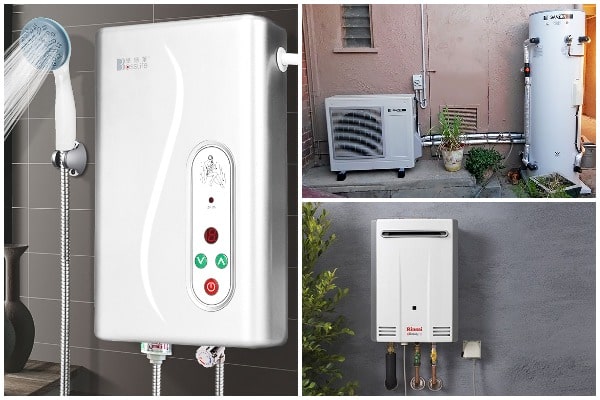For your home to be perfectly comfortable, you might need to invest in some appliances to help meet your needs for comfort. One such appliance is a water heater.
A water heater is a system that heats your water so you can enjoy hot showers and wash your laundry well, among other things. Although a water heater is useful, it can present hazards in your home. Therefore, it’s important to factor in safety when adding a water heater to your home. Below are some dos and don’ts to assist you with this.

The Do’s
Always Work With Experts
In most homes, occupants aim to reduce expenditure as much as possible. That’s why some would take up appliance DIY repair duties. However, it’s an approach you shouldn’t take with your water heater. A lot could go wrong, like electrical mishaps or getting yourself injured. Dealing with water heater problems on your own can only make things worse. Therefore, do work with experts.
Ensure you call a water heater repair company in Fishers, Indiana, or your region to handle the appliance. These companies have experts who know how to handle water heaters. They have the right tools for the job and put up safety measures, reducing the possibility of things going wrong.
Perform Regular Maintenance
For an appliance to work efficiently at all times, maintenance is a practice often recommended. It’s a practice you should also adopt for your water heater. Be sure to conduct maintenance regularly. A standard water heater usually requires maintenance once every six months.
Some aspects to check during maintenance are the valves, pressure, and temperature. It would help to create a checklist to ensure the maintenance routine is thorough. You don’t want to miss inspecting a part only for it to wreak havoc in the future. The water heater’s manufacturing guide should help you create the checklist.
Ensure Adequate Ventilation
Water heaters can differ in the way they operate. Some run on electricity, while others rely on gas.
A gas-powered water heater requires adequate ventilation. As it runs, it releases carbon monoxide, a gas that’s toxic when inhaled. The aspect that makes this gas a safety hazard is that it’s odorless and invisible. That’s why it’s important to ventilate the room where you’ve placed your water heater. This room could be your garage or basement. Install as many vents as possible and windows. They’ll ensure there’s adequate air circulation.
The gas-powered water heater isn’t the only one that requires adequate ventilation. All water heaters require ventilation since they require high temperatures to meet your water needs. The ventilation will ensure cool temperatures in the room. Excessive heat can cause a fire.
Also Read: Wondering if an expansion tank for water heaters is necessary for your system? Learn how it contributes to safety and prevents potential hazards.
The Don’ts
Do Not Set The Temperature Too High
Most people prefer hot showers. During winter or other cold seasons, they often get tempted to increase the temperature settings of their water heaters. It’s a practice you should avoid at all costs. However, don’t raise the temperature beyond 120 degrees. Temperatures that high can burn and scald you, and can cause your heater to explode. It would help to read the manufacturer’s guide for more insight into the temperature aspect of your water heater.
Do Not Store Anything Near The Water Heater
As previously stated, most homeowners install water heater systems in the garage or basements. These spaces are also often used for storage purposes. The proximity of the stored items to the water heater is a safety hazard.
When running the heater at high temperatures, items nearby could catch fire, especially if they’re flammable or combustible. Therefore, don’t store anything near the water heater. If you don’t have any other space for a water heater except the garage or storage room, keep your items at least 18 inches from your water heater.
Do Not Fail To Keep Children Away
Most children throw caution out of the wind as they play or discover new things. It’s a behavior that can put their lives at risk. If your water heater is in the garage or basement, you must be wary of your children’s presence in these rooms.
You might have stored their toys in the garage and kept them close to your water heater. If they want to get those toys, they might run the risk of accidentally or intentionally touching the heater here and there. The high temperatures of the heaters could cause burns. Also, if they have yet to learn about its functionality, they could damage it. Therefore, don’t fail to keep children away from your water heater.
Conclusion
A water heater is supposed to bring positivity to your home by offering comfort. In no way should it harm you. As a responsible homeowner, it’s important to understand how to handle a water heater and any ensuing problems. Consider implementing the dos and don’ts discussed in this article to prevent avoidable disasters and ensure comfort at all times.